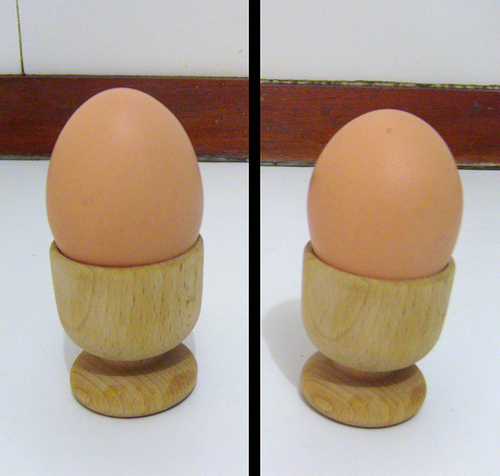Little-Endian vs Big-Endian
At one time, we had to constantly work with network data, and especially with the headings of the network and transport layers of the OSI model. Constantly strained by the fact that many fields were in the Big-Endian, and the code was executed on the architecture of Little-Endian. Well, it was impossible to constantly call ntohl (), htonl (), ntohs (), htons () ...

Photo author: Ciroduran , photo source: flickr .
The idea came to implement the following pair of patterns: LittleEndian <T> and BigEndian <T>.
')


Templates are used as follows:

It remains to give the types more nice names, like this:

Now you can use types through shorter names u16be , u32be ...
The only thing in these templates is not enough different operators + =, - =, * =, ++ and others. Operators are available in the full version of the code, it was inappropriate to bring them into the article. Here are links to the complete source codesLittleBigEndian.h (see the new link below in UPDATE1) and LittleBigEndianNames.h .
UPDATE1:
As was rightly noted by the user qehgt in the comment to the post, the code is not quite correct for 64-bit numbers. I apologize for this misstep. Here isLittleBigEndian.h (see the new link below in UPDATE3) where this bug has been fixed.
UPDATE2:
Comrade sic conducted tests of the speed of the above templates in comparison with the functions htohl (), htonl (), ntohs (), htons (). Tests showed a relative increase in speed when using the above templates instead of calling library functions. Thanks for the work you've done.
UPDATE3:
Comrade rekub saw the possibility of increasing the speed of the object copy constructor. He proposed using union to represent data both as an array and as a variable of type T. The proposed modifications were implemented in the following source,LittleBigEndian.h (see the new link below in UPDATE4). Thank!
UPDATE4:
Comrade vadelve pointed out an error in the implementation of postfix and prefix increment and decrement operators. Corrected version: LittleBigEndian.h .

Photo author: Ciroduran , photo source: flickr .
The idea came to implement the following pair of patterns: LittleEndian <T> and BigEndian <T>.
')
Template for byte order LittleEndian:

Template for the BigEndian byte order:

Templates are used as follows:

It remains to give the types more nice names, like this:

Now you can use types through shorter names u16be , u32be ...
The only thing in these templates is not enough different operators + =, - =, * =, ++ and others. Operators are available in the full version of the code, it was inappropriate to bring them into the article. Here are links to the complete source codes
UPDATE1:
As was rightly noted by the user qehgt in the comment to the post, the code is not quite correct for 64-bit numbers. I apologize for this misstep. Here is
UPDATE2:
Comrade sic conducted tests of the speed of the above templates in comparison with the functions htohl (), htonl (), ntohs (), htons (). Tests showed a relative increase in speed when using the above templates instead of calling library functions. Thanks for the work you've done.
UPDATE3:
Comrade rekub saw the possibility of increasing the speed of the object copy constructor. He proposed using union to represent data both as an array and as a variable of type T. The proposed modifications were implemented in the following source,
UPDATE4:
Comrade vadelve pointed out an error in the implementation of postfix and prefix increment and decrement operators. Corrected version: LittleBigEndian.h .
Source: https://habr.com/ru/post/121811/
All Articles